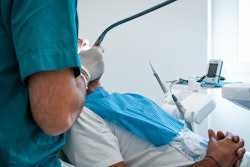U.S. dentistry may be amid a silent decline due to many factors, including the commercialization of healthcare, rising student debt, and professional burnout. The perspective was published on July 3 in the Journal of the American Dental Association.
The dental healthcare system may face rising costs, limited transparency, and continued inequality unless it undergoes structural reforms, the author wrote.
“Rebuilding credibility in the profession will require a willingness to engage with difficult issues and a collective commitment that extends beyond individual practice,” wrote author Dr. Joe Iwanaga, PhD, of Tulane University in New Orleans.
Mounting dental school debt, patients’ inability to see their dental problems, the erosion of public trust and skills, limited specialized training in dental school, and the influence of corporate dentistry have left dentistry in the U.S. in an untenable situation, according to the perspective.
In 2024, the reported average education debt for dental graduates was $312,700, according to the American Dental Education Association. Graduates are not only grappling with the pressure to pay it back but what they may need to do to keep up with those payments. Unfortunately, this pressure can affect practice patterns and add to bloated fees for dental services, Iwanaga wrote.
The problems don’t end there. After debts are paid, a dentist’s approach to the profession may change. Dentists’ motivation may be negatively affected, leaving them unwilling to strive for clinical excellence or advanced training.
Another major vulnerability in dentistry is that patients cannot view or verify most dental services. Clinicians wear many hats. They are diagnosticians, treatment providers, and financial beneficiaries. In other medical contexts, those roles are separated to maintain accountability. These circumstances can lead to an erosion of public trust, Iwanaga wrote.
Additionally, Iwanaga wrote that the U.S. dentistry model promotes “early specialization and risk-averse general practice.” Therefore, dental students should be trained to perform thorough, competent care.
To help restore public trust and professional integrity, dentistry may want to do the following:
- Reinvest in public dental education to decrease the burden of student debt and expand access to the profession across diverse groups.
- Enhance clinical accountability by establishing objective diagnostic protocols, including pre- and post-treatment images and standardized probing charts.
- Bolster continuing education, changing the focus from credit-hour accumulation to established clinical proficiency and relevance to developing standards.
- Move dentistry into the broader healthcare system.
As dental care systems face growing obstacles, the best path ahead may require international collaboration in education, policy, and clinical standards, the author wrote.
“From a global perspective, the most pressing concern may not be a dramatic decline, but rather a gradual acceptance of diminished expectations,” Iwanaga wrote.




















